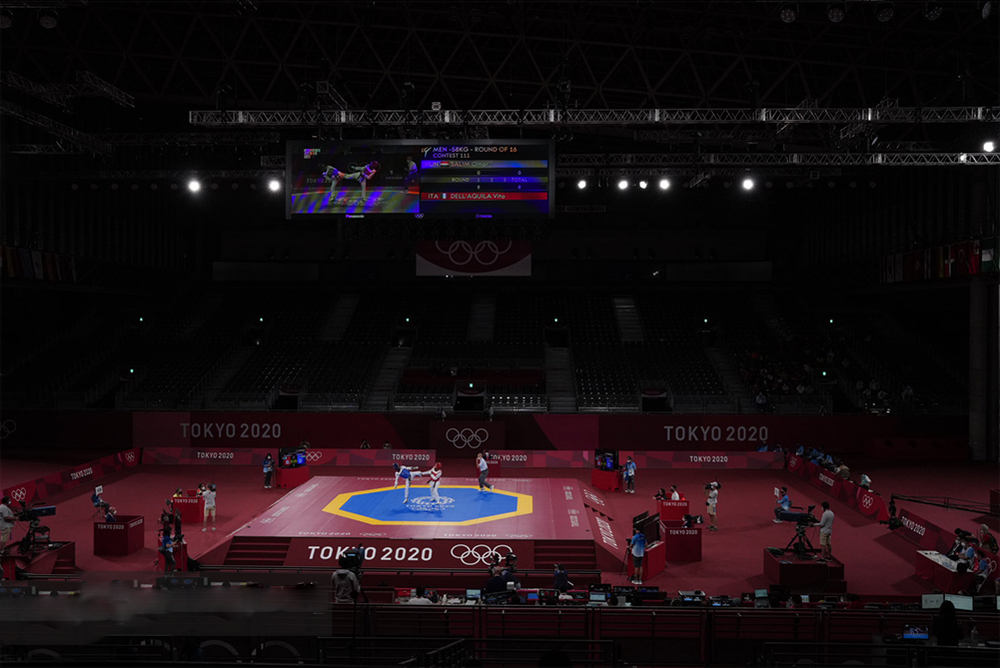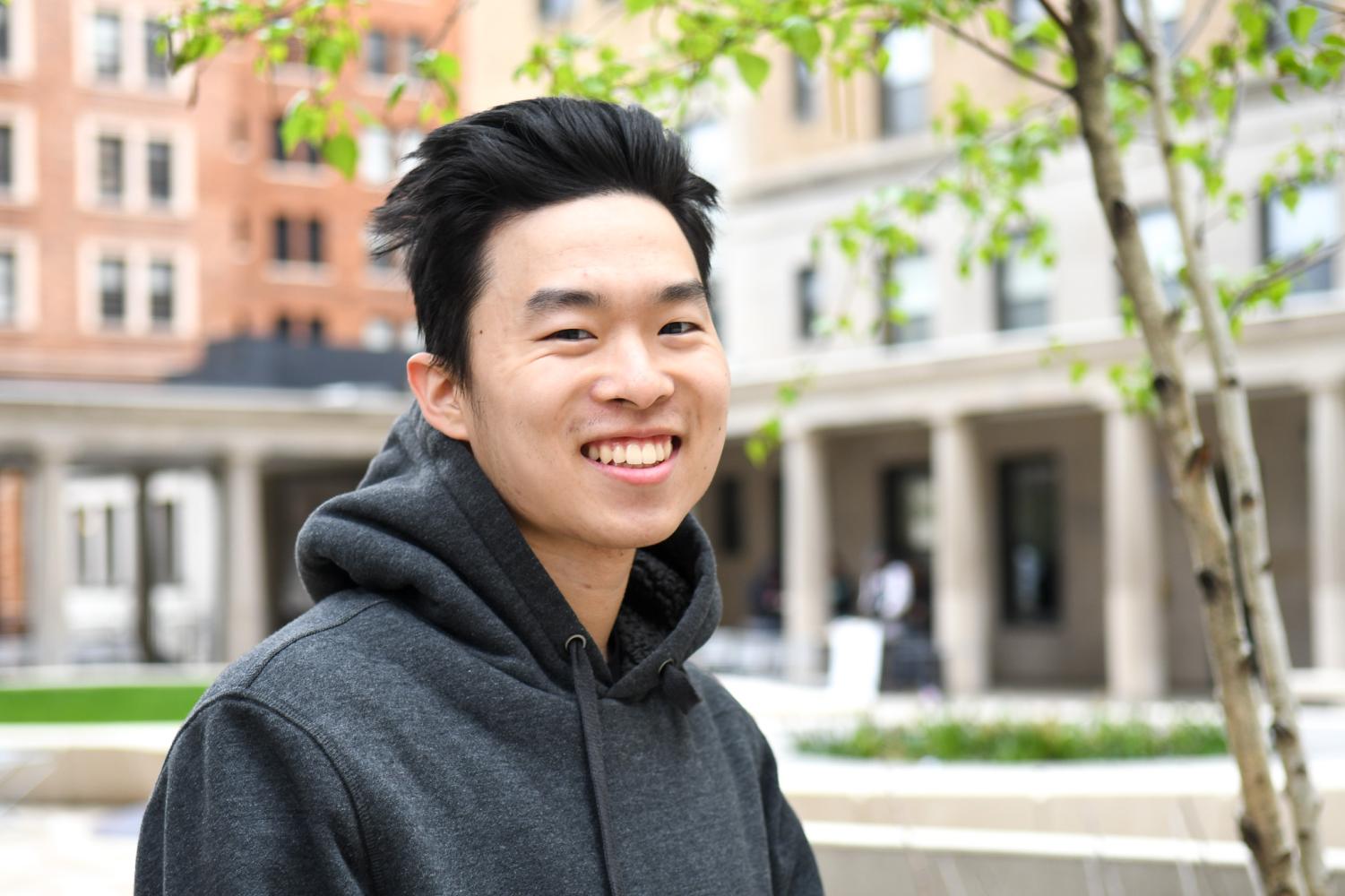Pitt Junior Cassius King has Olympic aspirations in Taekwondo
Taekwondo at the 2020 Summer Olympics on July 24, 2021.
April 19, 2023
Many dreamers call Pitt home. From medical researchers who want to cure debilitating diseases to young quarterbacks from New Jersey who hope to play in the NFL someday — even lowly student paper sports columnists who aspire to write for the big screen.
Cassius King dreams of competing in the Olympics for Taekwondo.
Making it to the Olympics takes years of hard work and a little bit of luck. Even with the odds stacked against him, King is diligently preparing for the Team USA National Talent Identification Camp later this year.
King started practicing martial arts when he was seven years old at his mother’s suggestion.
“I was ushered into it by my mom because she wanted me to be able to defend myself,” King, a junior psychology major, said. “There were some bullies growing up.”
After years of training under the tutelage of Lou Bachetti — a martial arts instructor who teaches at Newtown Karate Academy in Bucks County, Pennsylvania — King worked his way up to a second degree black belt.
Bachetti, a fourth degree black belt who specializes in Tang Soo Do, said King’s relentless willingness to learn distinguished him as a pupil.
“His greatest strength is his curiosity,” Bachetti said. “As we were training, he would constantly be asking questions, and he would use that information to enhance his training.”
In his first semester at Pitt, King started training remotely with Stephen Lambdin — a strength and conditioning coach for Team USA and former Olympic athlete who represented the United States in Rio in 2016. King initially contacted Lambdin through direct messages on Instagram.
“How it happened was I reached out to [Lambdin] on Instagram,” King said. “And he oversees athletic development at the training center in Colorado. He’s been training me online for the fall national talent camp.”
Now, in addition to attending school full time, King is learning Olympic-style taekwondo from the cramped conditions of his dorm room in Lothrop Hall.
“There are some martial arts places around,” King said. “But they don’t really cater to the Olympic style of taekwondo.”
While taekwondo is a Korean martial art that dates back thousands of years, competitive taekwondo is a relatively new addition to the Olympic categories, debuting at the 2000 Summer Olympics in Sydney. Traditional taekwondo is catered toward self-defense, while Olympic taekwondo revolves around points earned from well-placed strikes against opponents.
“I’m very new to this whole thing,” King said. “I’ve been training in martial arts for over a decade, but this specific style of taekwondo is a little bit new to me.”
While qualifying is incredibly difficult, Bachetti argues that making it to the Olympic level requires consistency above all else.
“This really transcends to anything,” Bachetti said. “You can’t be on and off. You have to be on all the time. That on button can be slower sometimes, but it can’t stop. And that’s the biggest problem with people when they train is they’ll stop and they’re inconsistent. And once they’re inconsistent, that’s when they start to fail or lose that forward momentum.”
King echoed Bachetti’s sentiments about the merits of consistent effort, but added that enjoying the process is also conducive to long-term success.
“Enjoying what you do is very important,” King said. “You could have all the talent and skills in the world, but if you don’t really enjoy doing it, I don’t think that it’s something that you should continue doing.”
Carole Connolly, King’s mother, praised her son for his relentless motivation, even though at one point King considered quitting the sport altogether.
“He had thought about stopping karate, but then decided to get his black belt and then his second degree black belt after that,” Connolly said. “I was very proud about that and I’m just proud in general as far as him being a kind, gentle human being.”
Only 128 fighters will compete in the Paris Games in May 2024, so the odds of qualifying are extremely slim. However, King hopes his Olympic aspirations inspire others to follow their passions.
“If anybody ends up reading this article, I would just hope that they’re inspired and continue to work hard in whatever they’re doing.”




